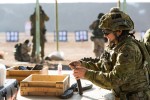Search
Using the filters to the left, click your selection, it will become bold and filter the results, click it again to remove that filter.
How long will it be until Russia invades the Baltic States? Or Poland? Or indeed even attempts to capture all of Western Europe? Regular reports in western corporate media and comments by a sizable number of politicians, senior military officers and influential commentators would suggest that the Russians are coming and soon. Some examples include comments by the former UK Prime Minister David Cameron stating that ‘Europe must remain united in the face of the threat from Russia’ and the US Deputy …

The continued success of the Australian Army Blog is good news – especially since our adversaries have been blogging for years. And while we in the West are guilty of dismissing enriched media as the domain of cyber geeks and Twilight fans, our opponents have quite literally been developing ‘killerapps’. It is perfectly understandable that Western militaries dismiss enriched media, after all, its use in calling people to action has rarely amounted to more than “ slactivism ”. Over 1.3 million …
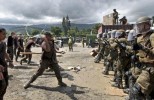
In an address to the National Press Club in October 2006, the Commissioner of the Australian Federal Police (AFP) at the time, Mick Keelty, mentioned that the increasing demand for police to participate in increasingly complex and robust international peace-keeping operations had led the AFP, notably its International Deployment Group (IDG), to grapple with the notion of it operating as a ‘pseudo-gendarmerie force’. As Australia’s defence community and concerned academics have sought to sift for lessons …
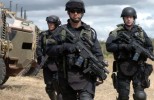
Simplicity is a principle of war. The ongoing pursuit of ‘synchronised effects’ is causing staffs, staff processes and staff systems to grow ever more complicated contrary to the simplicity principle. The resulting demand on commanders and principal staff officers is overwhelming and operations tempo is notably sluggish. The common observation that staffs do not ‘integrate effects’ well is a symptom of this problem; but it is a symptom of the pursuit of the wrong idea rather than staff inadequacy. The …
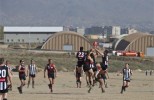
Combat Service Support (CSS) assets by their very nature, are vulnerable in the battlespace. They are often slow, cumbersome and leave a large signature; making it tedious and resource intensive for commanders to protect. In manoeuvre warfare, they are a tempting target, a gap between hard services which can cause disproportionate damage when attrited. A classic dilemma for the commander is allocating correct combat weight to protect CSS assets whilst still achieving mission aims. The Australian Defence …
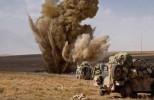
Army is making significant progress to reduce the stigma surrounding mental illness, particularly illness linked to operational service. If this encourages even a small number of ill personnel to obtain support and treatment early to reduce their risk of chronic pathology, it is an immensely positive change. Army’s enhanced mental health strategies are a significant improvement and demonstrate the emphasis Army is placing on looking after the welfare of veterans. Highlighting only chronic illness amongst …

Introduction Imagine having the ability to direct suppressive fire on to a target from distance without ever revealing the location of your machine guns to the enemy. In the Australian Army this capability is a reality. In the infantry, Direct Fire Support Weapons (DFSW) soldiers are charged with providing the suppressive fire necessary for manoeuvre elements to close with and kill the enemy. At present, extended range machine gunnery (ERMG) is a specialist skill that takes weeks to teach to a trained …
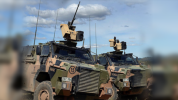
I have an idea for producing high-quality drinking water at very short notice in support of soldiers engaging in disaster relief efforts. It will significantly reduce the need for ongoing resupply and the extremely high cost associated with moving bulk water. The solution is a lightweight water purification unit. Contaminated water supply during natural disasters is a serious concern that quickly falls to assist organisations such as the Australian Defence Force (ADF) to combat. Deployment of the existing …

Observing how our past appeared when it was the future can help us understand why events occurred as they did, how individuals became prisoners of their experiences and missed what was blindingly obvious to later generations, and occasionally saw what was coming, only to be dismissed by their contemporaries. In short, the future of war has a distinctive and revealing past.’ Lawrence Freedman [1] History is an assessment of events from the past retold in the present. History is often biased; it is both …

Moving from Gender Analysis to Risk Analysis of Failing to Consider Gender Source: The RUSI Journal The Australian Defence Force is a world leader in integrating the aims of UNSCR 1325, with it being a critical part of training and operations. Despite some success, we must continue to build on and improve the gender planning considerations within our planning processes. Because in wars fought within and ultimately for the support of civilian populations, the gender dimension is a vital one. The article …
